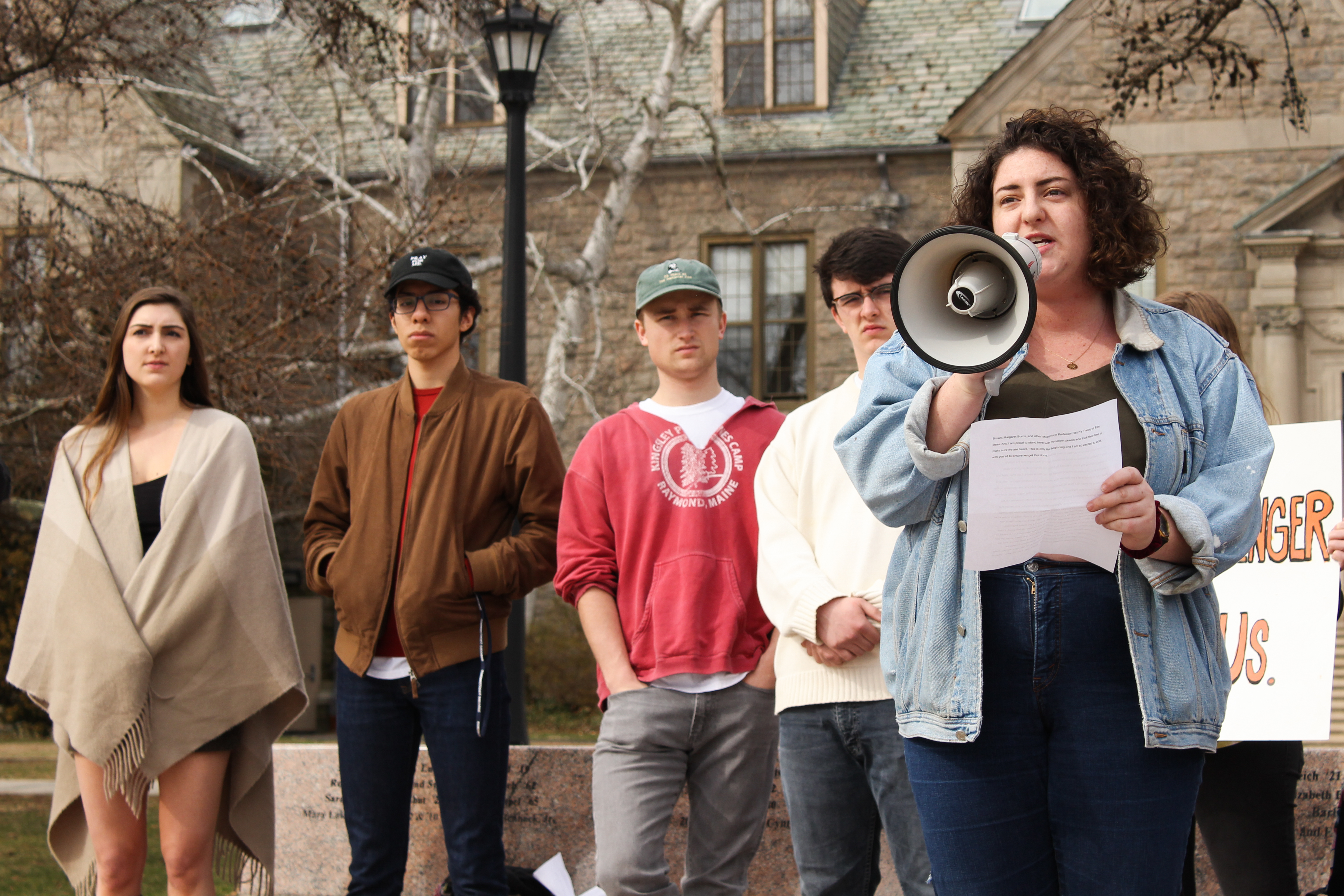While reading the New York Times a couple weeks back, my self-identity received a serious blow. I was born on October 6, 1996; according to many parameters, I am not a millennial. In fact, most of us attending Connecticut College right now are not millennials.
Those of us 22 and younger have been intermittently deemed “Generation Z,” “the iGeneration” or “iGen” as coined by psychologist Jean Twenge, and the “Delta Generation,” which refers to the mathematical symbol for change. Nonetheless, it appears that no standard generational title has been chosen for my age group. Though being named after the corporate giant Apple is personally revolting to me, it is not as terrifying as being named after a particularly relevant brand of tragedy: mass shootings. But after its introduction in a Feb. 16 New York Times article, the nightmarish moniker of “the mass shooting generation” is starting to catch on.
One widespread definition of what makes a millennial a millennial, is the traumatic impact of 9/11. I was five at the time of 9/11. I have only one clear memory from that day— my pregnant mother in our living room staring at the TV, with tears in her eyes. I did not know what had happened. I did know that my Mom was scared and I suppose that in itself was traumatic, but overall I think the cutoff date for millennials as classified by this tragic event is appropriate. I cannot be defined by a memory that is hazy at best.
Memories that are certainly not hazy in my mind are school shootings, of which my generation has seen many. I grew up in Berlin, CT less than an hour away from Newtown. I remember sitting in my AP Psychology class on December 14, 2012, when I was told that 26 people had been killed at Sandy Hook Elementary. 20 of those victims were children under the age of seven. A student sitting next to me cried out in horror that her cousin attended that school.
There had been other mass shootings before Sandy Hook. There were five people killed in a shopping mall in Salt Lake City, UT in 2007; 13 killed at an immigration service center in Binghamton, NY in 2009; and eight killed in a hair salon in Seal Beach, California in 2011. There had even been mass shootings in schools: 13 killed at Columbine High, Colorado in 1999; 32 killed at Virginia Tech in 2007; and 7 killed at Oikos University in Oakland, California in 2012. No doubt gun violence is embedded within our nation’s history, but Sandy Hook was a break. 20 children, innocent and defenseless, were murdered. Is a child’s right to life less valid than a person’s right to own a gun?
Not everyone is convinced that guns are the cause. Conservatives often blame mental health, terrorism, and the irrational decision-making of individuals for mass shootings. However, let us consider Australia as an example of a country that eliminated its guns and therefore eliminated its problem. In 1996, a 28 year-old white man, shot 35 dead at a café and nearby gift shop in Port Arthur. Within weeks of the mass murder, Australia banned semi-automatic and other military style weapons. There has not been a single mass shooting in Australia since 1996. For the entire 21 years of my life, Australians have been significantly safer than Americans from guns. If I were living in Australia, I would not be writing about whether my generation should be defined by mass shootings at all.
Gun control is an extremely politicized issue in our country. The NRA lobbies and spends its way through Congress, using its wealth to gain a stronghold over our government. It is widely known that Democrats support background checks and bans on assault weapons, while Republicans argue for their Second Amendment rights. This divide concerns me in that I believe gun control should be a unified issue. Immediately following mass tragedy, Australians recognized the problem within their nation. They worked together, liberals and conservatives alike, to make positive change. They didn’t take away all the guns, just those that were proven to be dangerous. They stopped the mass murder.
In our increasingly polarized political atmosphere, led by an extremely divisive president, perhaps I am being too idealistic. Perhaps politicization is necessary. I absolutely support standing with those who support checks on gun ownership and calling our representatives until we are heard. Yet, I am disillusioned by our nation’s inability to work together on a solution that is so obvious.
Young, innocent lives have been taken. The US has significantly higher rates of gun violence than any other developed country. The day that 20 children were murdered by a man with semi-automatic guns, that is the day this debate should have ended. I fail to understand how our country is still questioning whether the militarization of our society is acceptable.
So call me a member of the “iGeneration,” or the “Post-Millenials” or even the “La-La Land Generation,” as was suggested to me by a baby boomer. Call me whatever you please, but do not let me be defined by more murder. I do not want to be a part of the mass shooting generation.










